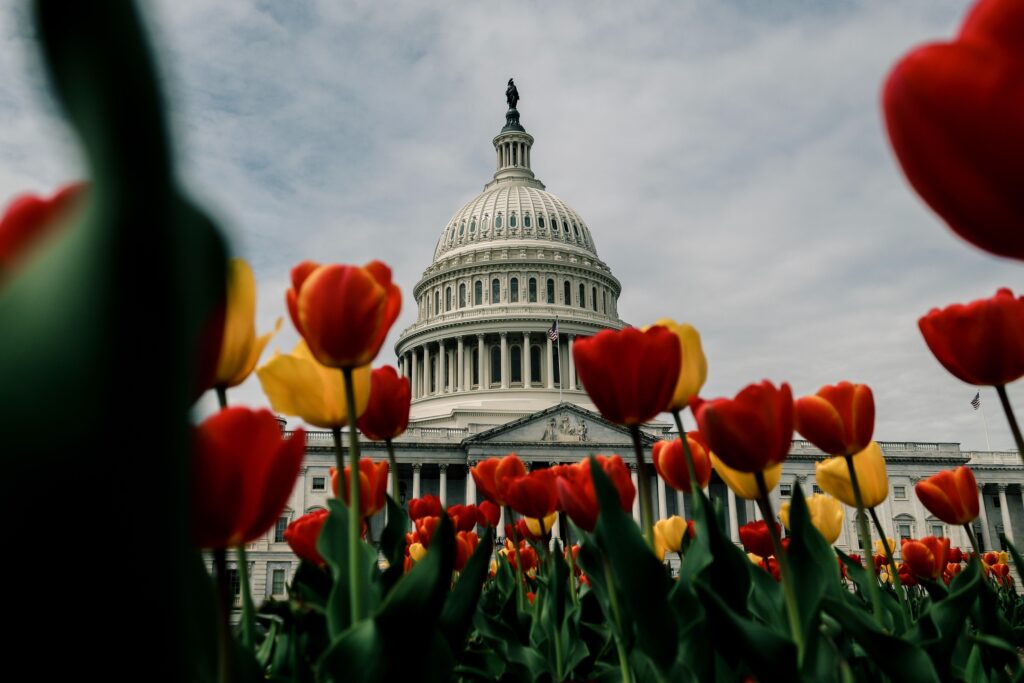Senator Markey, Rep. Matsui, and Colleagues Urge Biden to Think Big on Fuel Economy and Vehicle Greenhouse Gas Emission Standards
Senate and House lawmakers send letters urging administration to use Obama-era fuel economy standards as national baseline
Today, Senator Markey and Representative Matsui sent letters, along with 79 members of Congress, to President Joseph Biden to address the importance of setting ambitious and achievable targets for the efficiency and greenhouse gas emissions reductions of passenger vehicles through 2025. During the Obama administration, regulatory standards were set to improve corporate average fuel economy to 54.5 mpg by 2025. However, the Trump administration rolled back this rulemaking, despite the agreement from automakers on the rule and a midterm finding by the Environmental Protection Agency that the standards were appropriate and could even be increased.
The Senators “ask [Biden] to direct the EPA and National Highway Transportation Safety Administration to establish vehicle greenhouse gas emissions and fuel economy standards that, at a minimum, match the Obama-Biden administration’s 5 percent annual improvement rate through 2025, and [they] urge [him] to pursue a more ambitious long-term standard that will ensure both emissions reductions from internal combustion engines and the widespread adoption of electric vehicles.”
The Representatives “urge the Administration to, at minimum, reinstate the California Clean Air Act waiver and restore the Obama-Biden greenhouse gas and fuel economy standards. Since the establishment of these standards, technological progress has made it easier to meet or even exceed them, which is why the Obama-Biden standards should serve as the baseline for vehicles sold through 2026 and embolden the next set of more ambitious standards that will move us towards our shared goal of transitioning the fleet to zero-emission vehicles.”
Both letters cite the need to re-establish the United States as a technological leader on clean vehicles and urge the administration to consider the effects that more lenient standards have on environmental justice communities.
“We must be more ambitious than ever before on vehicle greenhouse gas emission standards. The standards set during the Obama administration were found to be more than achievable at the time, and anything less stringent will cost consumer savings, lives, and emissions that we cannot afford,” said Senator Markey. “There is only room to go bigger and bolder—we must not compromise on our future.”
“After four years of reckless rollbacks of our auto fuel and clean air standards from the Trump Administration, it is crucial that we make bold investments to protect consumers, the environment, and our public health,” said Representative Matsui. “For decades, California has led the way in developing the gold standard for emissions. In my district and home state, we have long recognized the need for decisive action. That is why we must reinstate the state’s Clean Air Act waiver and return to the highly effective Obama-Biden era standards.”
A copy of the Senate letter can be found HERE.
A copy of the House letter can be found HERE.
As other sources of greenhouse gas emissions have decreased, transportation has established itself as the largest contributor to these emissions in the United States. After the Trump administration’s rollbacks of the Obama-era vehicle greenhouse gas emission standards, fleet-wide fuel economy, which was improving, stagnated and even rose in 2019. In order to get back on a trajectory to net zero emissions by 2050, the Biden administration must establish standards to send a strong signal to automakers.
Senator Markey was joined on the Senate letter by Senators Dick Durbin (D-Ill.), Sheldon Whitehouse (D-R.I.), Ben Cardin (D-Md.), Chris Van Hollen (D-Md.), Richard Blumenthal (D-Conn.), Jeff Merkley (D-Ore.), Elizabeth Warren (D-Mass.), Martin Heinrich (D-N.M.), and Bob Casey (D-Pa.).
The letters were supported by the Union of Concerned Scientists, League of Conservation Voters, Zero Emission Transportation Association, Earthjustice, Green Latinos, American Council for an Energy-Efficient Economy, Center for Biological Diversity, Voices for Progress, Sierra Club, Hip Hop Caucus, Moms Clean Air Force, Environmental Working Group, Elected Officials to Protect America, Environmental Law & Policy Center, and Interfaith Power & Light.
“We can create millions of jobs and reduce dangerous carbon pollution if we go big on cleaning up pollution from cars, trucks and buses and make the investments we need to transition to electric vehicles and other pollution-free transportation options,” said former EPA Administrator and current League of Conservation Voters Board Chair Carol M. Browner. “The ‘Better’ in President Biden’s ‘Build back Better’ plan means rebuilding our economy in a smarter way, not just doing it the way it was done before. That includes making major investments that create an electrified and cleaner transportation sector and build the clean infrastructure of tomorrow, and using all of the President’s authority to set tough pollution protections that foster innovation and job creation in clean energy and other industries.”
“The transportation sector is the biggest source of global warming emissions in the country, and a major source of health-harming pollution that disproportionately affects communities of color,” said Michelle Robinson, director of the Clean Transportation Program at the Union of Concerned Scientists. “We can’t reach our climate goals and build a healthier, more equitable country unless we address emissions from cars and trucks. We applaud Rep. Matsui and other members of Congress in calling on the administration to set strong, science-based standards to reduce pollution and build the clean transportation system of the future.”
Category: Engines & Drivetrains, Featured, Fuel & Oil, General Update, Green, News, Transit News











